This guide is designed to go through all of the key principles and requirements, set out by the JCQ, for staff to award a fair, evidence based and without bias grade for all students who would have been sitting a GCSE in 2020/2021.

Our promise to our students for Assessment 2021 is that it will be:
- Valid - our assessment will measure what it is supposed to measure
- Fair - it is non-discriminatory and matches expectations
- Transparent - our assessment process is clear and you're aware of your grade ranges from the earliest opportunity
This document will outline how this will be achieved…
Overview
- Timeline
- Assessment and Evidence
- Supporting Materials
- Quality Assurance
- Results and Appeals
- Grading Details, Grade Descriptors and Worked Examples
- HoD Declaration (Checklist)
- Centre Policy
- Gifts
Date | Details |
08/03/2021 – 01/04/2021 | Great responsive teaching |
* 31/03/2021 | Exam board materials and guidance should be available |
19/04/2021 – 28/05/2021 | Main assessment window (timetable via ePraise) |
Post-Easter | Exam board materials should be publicly available |
10/05/2021 | Initial grade range produced for students (via ePraise) |
11/05/2021 | Tutor event (virtual) |
28/05/2021 | Secondary grade range produced for students (via ePraise) |
09/06/2021 | Internal submission of grades |
18/06/2021 | Deadline for grade entry to exam boards |
12/08/2021 | GCSE results day |
12/08/2021 | Appeals window opens |
JCQ Timeline
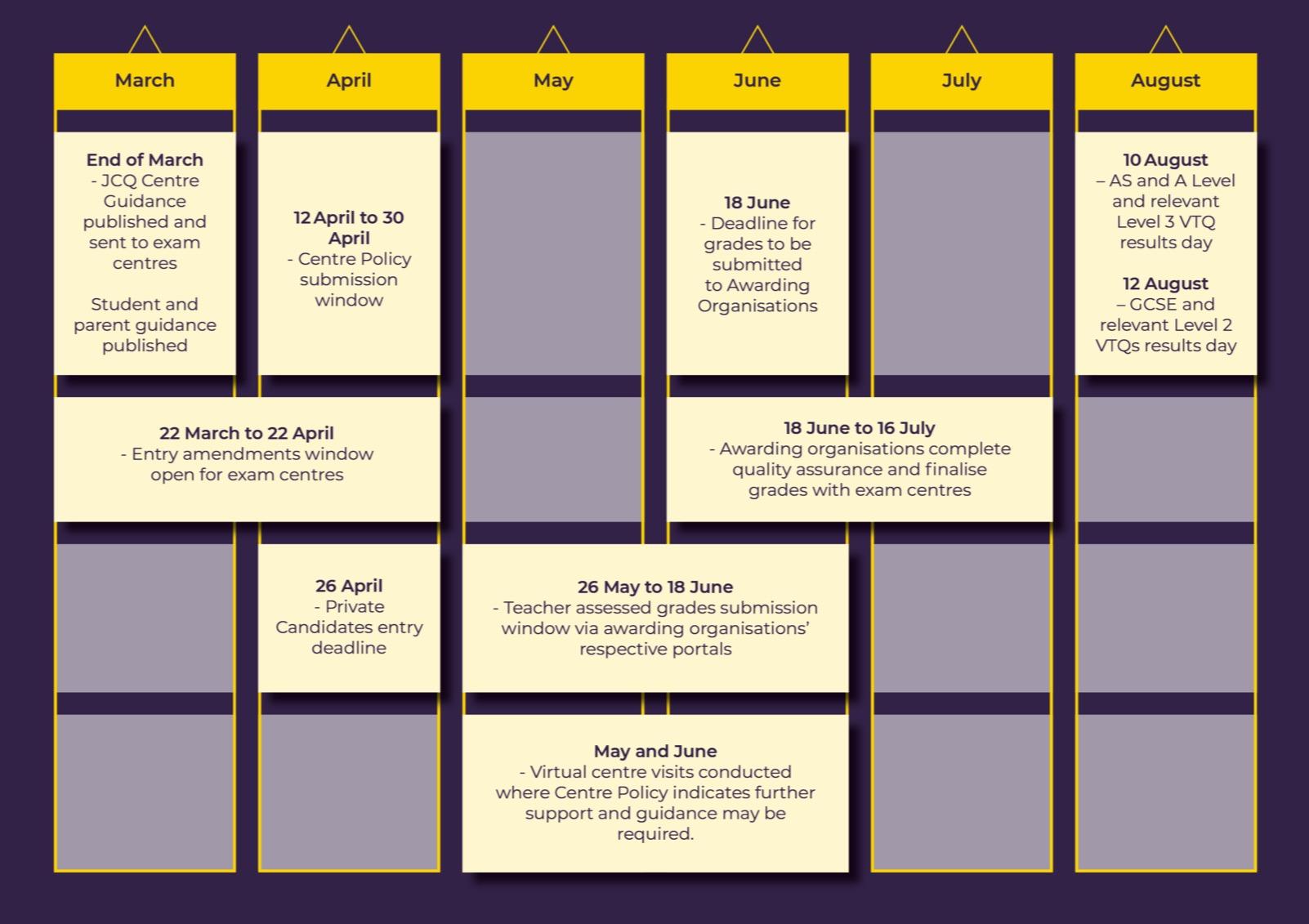
We will assess our students’ performance via content which has been delivered to them by their teachers, to determine the grade each student should receive. Evidence of a student’s performance throughout the course can be used to inform our judgements and we will use a broad range of evidence.
We will also have a weighting of 80/20 for most of the subjects (excluding BTEC / Cambridge Nationals / other subjects heavy in coursework). Assessment grades will be heavily weighted to the evidence supplied post-Easter, utilising the exam board supplied materials. These all have very specific mark schemes and guidance for the rigour expected to assess fairly, without bias and being evidence based.
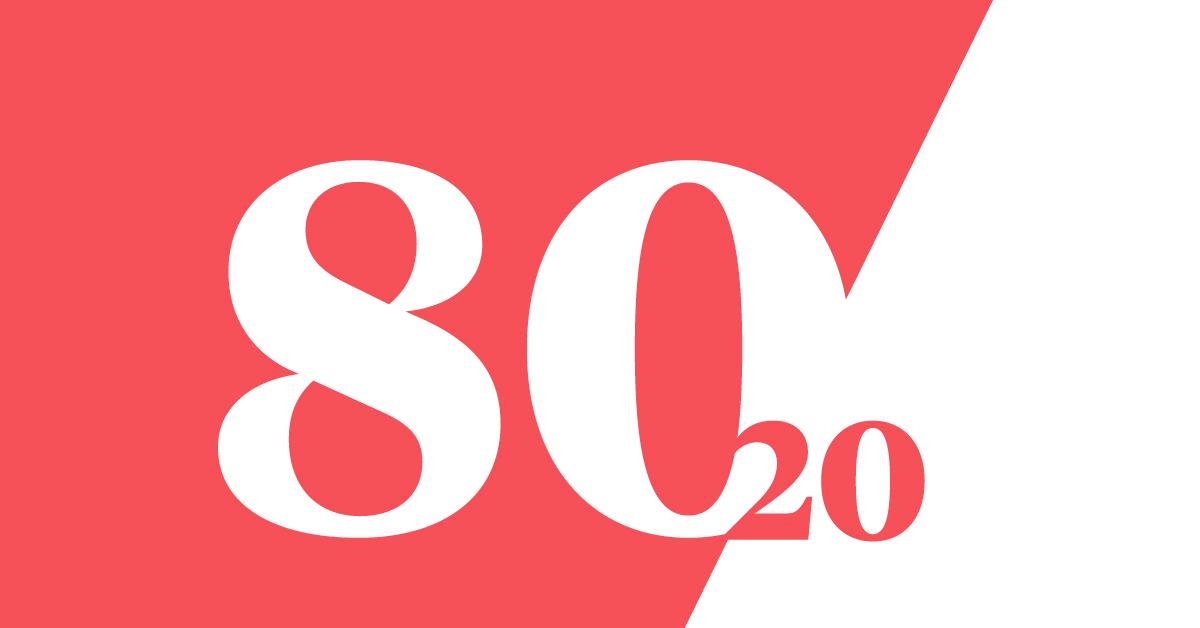
Students will continue to work on their non-exam assessment (NEA) which will be marked by teachers and will contribute to the overall grade, whether it has been completed, but we will not require exam boards to moderate it.
Exam boards are providing a package of support materials to include questions, mark schemes, data about how students typically performed in individual questions and exemplar materials. This will be based on past questions and a proportion of unpublished questions for every subject and should be available by the end of March. These will also be made publicly available after Easter. We will ensure what is made publicly available is easily accessed via Noadswood students.
Exam boards will put in place arrangements for external Quality Assurance to check each centre’s internal process and, in a sample of centres, to review the evidence for one or more subjects. Sampling should be both random, and risk based.
Noadswood quality assurance processes will ensure teacher, Team Leader of the subject, SLT line manager and all involved are confident with the evidence gathering and assessment processes and that these have been conducted in a transparent, valid and fair way.
Ofqual and the JCQ have confirmed students will be able to appeal their grade. A student who is unhappy with their grade will first ask Noadswood to check whether an administrative or procedural error had been made.
If an error has not been identified in the grade submitted to the exam board, Noadswood can submit a revised grade and a rationale for the board to consider. If the exam board is satisfied with the rationale, it will issue a revised grade.
If Noadswood do not believe an error has been made, then a student can ask Noadswood to appeal to the exam board on their behalf. Noadswood will submit the student’s appeal to the exam board and provide the evidence on which its judgement had been made; the exam board will consider whether, in its view, the grade reflected an appropriate exercise of academic judgement. If the exam board judges that it did not, the exam board will determine the grade that the evidence would support. The exam board will also check that Noadswood had followed its own process. Appeals, if valid, may not change, could go up or could go down.
Results days will be on 12th August 2021 and appeals open from this date.
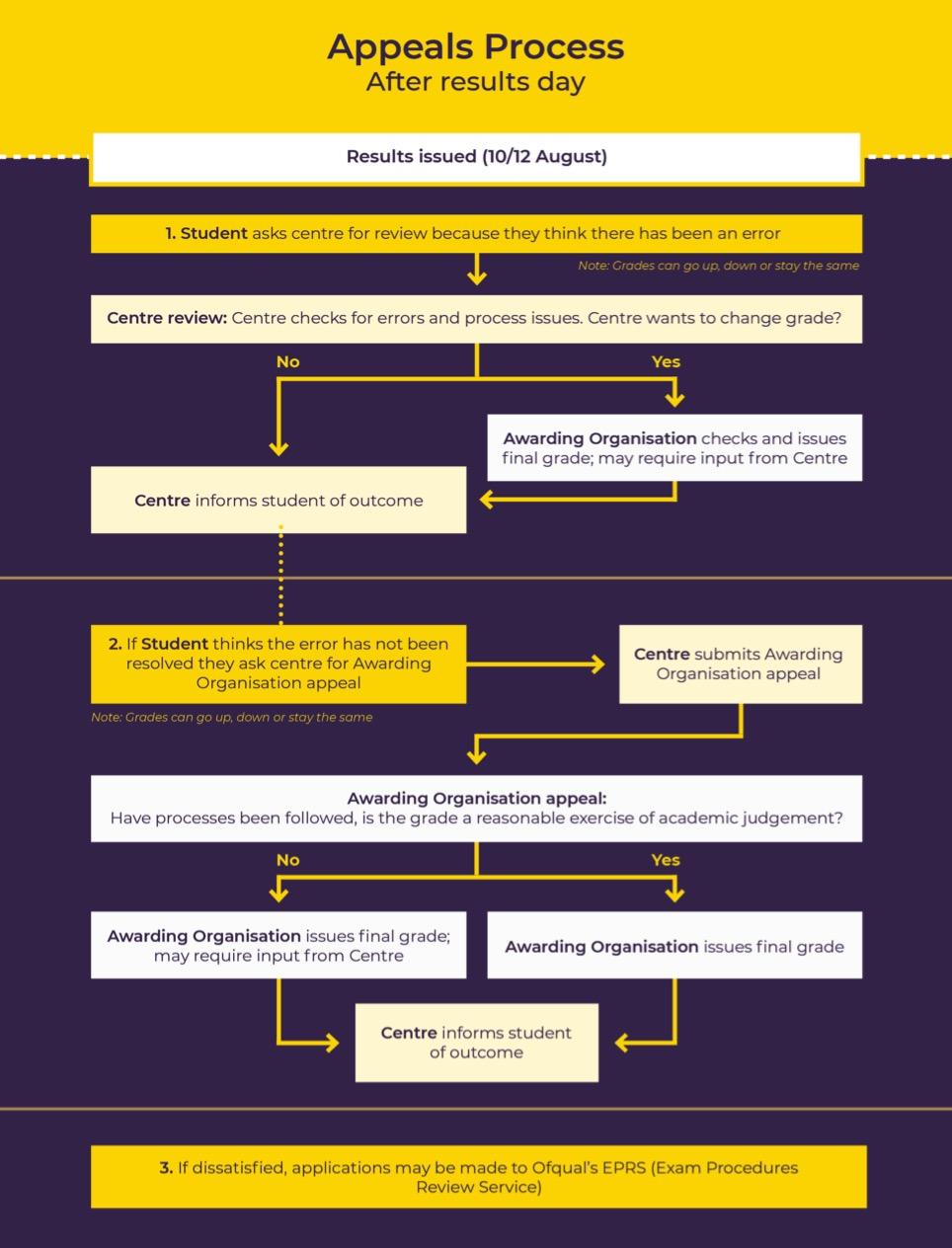
Ofqual Infographic
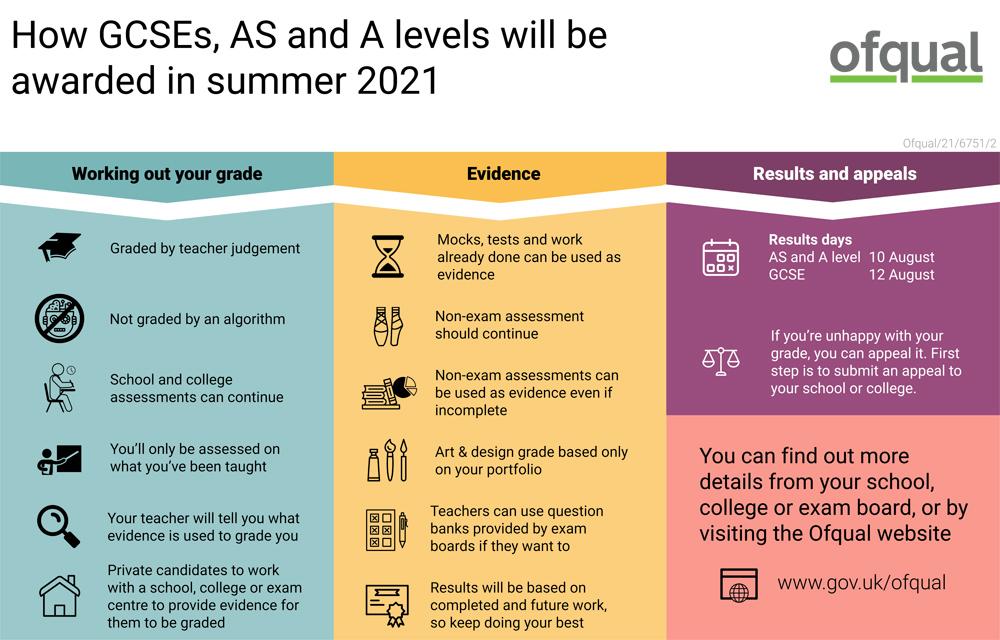
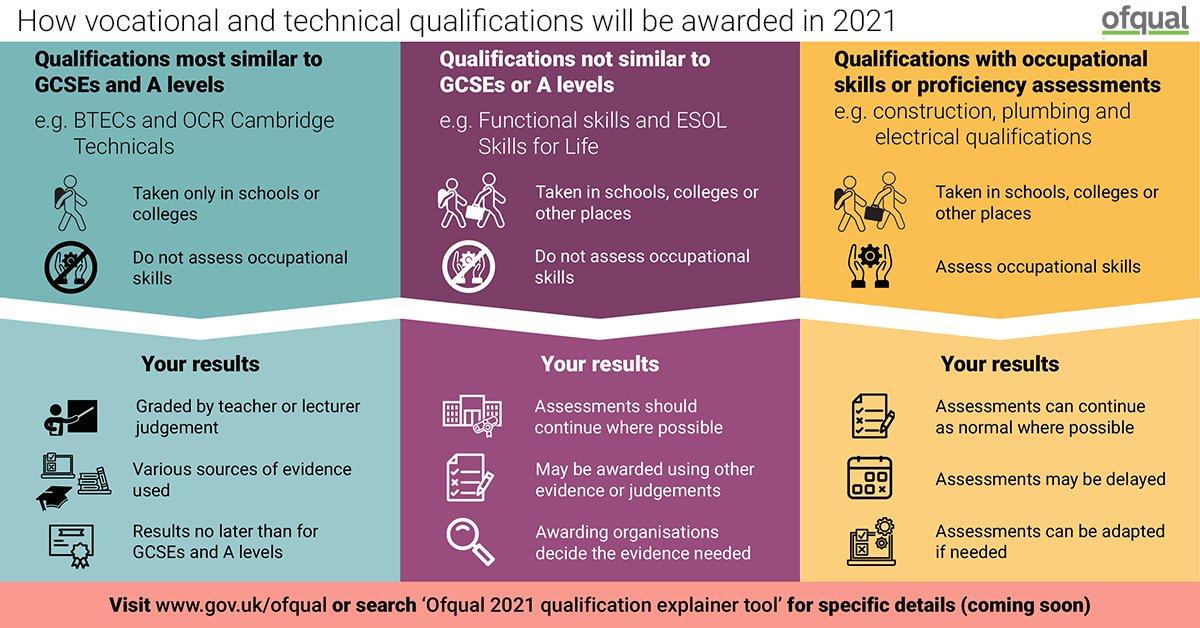
Noadswood will be following the key rationale, as below:
- The examination board assessment materials will form the main part of the assessment (80/20) and will be used in all subjects which is an important step towards ensuring robustness of grades submitted.
- It provides a level of protection to staff in awarding a grade. Without it, teachers could be identified individually as the driver for a child’s underperformance
- The performance against these materials should form the starting point of the final grade awarded – this grade should form the baseline from which other assessment pieces contribute. It should be exceptional to have a final grade awarded that is more than a grade away from what the examination board material would suggest.
- Assessments are to be completed in lesson time with their normal teacher who will also mark the scripts supported by teaching assistants if applicable. Should a student miss the assessment then the subject team will organise an opportunity for this to be conducted after school in a subsequent evening. If there are legitimate reasons why this cannot be caught up (illness / bereavement etc…) this assessment piece will be disregarded (not given as a zero mark).
- Students will receive a centrally produced timetable of the main assessment opportunities in each subject. This will be available via ePraise and tutors and house leaders will assist in ensuring this is seen (along with other pertinent details, including revision and study opportunities in each subject).
- The exam boards will be providing guidance on the above, prior to the Easter break and this guidance should be followed. Question banks should include a range of previous questions and descriptors and exemplars provided.
- Learning support adjustments will be provided for those students who require – our SENDCo, examinations officer and team leaders will co-ordinate to ensure no student is disadvantaged. House Leaders will also provide updates about potential inequalities and how support should be directed.
Every student will have a grade issued in every subject that has been deduced from a number of sources, hierarchically:
- Examination materials provided by the examination boards
- Internal exam papers sat within class, prior to lockdown
- Coursework or similar controlled assessment sources (based on exam content)
- In-class tests and assessments and longer piece essays
- Book-work that clearly evidences examination criterion
It is important that subject leaders have a clear understanding of how each grade is deduced and assessment materials are to be based on the work students have covered only. If part of the course has been provided when remote learning was not compulsory (and where potential disadvantage might occur, such as limited IT access at home, a suitable home learning environment, lockdown health issues) then this should not form part of the assessment evidence (and this noted on an individual student’s assessment record).
Evidence pre-Easter can be records of marks / grades but post-Easter there should be a process of evidence retention for all subjects, as per the JCQ guidance.

Grade distribution using SISRA will be used to gauge reasonableness and highlight erroneous data. It is worth noting that Gavin Williamson’s letter to Ofqual has stated outcomes should be broadly in line with 2020. Significant deviations will need further explanation (see HoD declaration).
Moderation between teachers in each given subject, internally, is to take place and where possible with colleagues in other schools to help standardise.
Note that in addition to the appeal, a SAR could still be forthcoming so to avoid requests that insist upon extensive information about everything to do with a given student Noadswood will endeavour to have a clear and transparent process with students and parents. It is important in explaining what information the determination of the grade was made, and this means that by following the stage 2 appeal process Noadswood should assuage parents enough to mean they don’t seek ‘hidden’ (non-existent) information that was used to determine a grade.


Optional student assessment sheet (JCQ template)

Centre Policy
Noadswood are required to produce a centre policy for the Assessment 2021 as a statement of compliance to confirm that your centre's policy is in place for the delivery of Teacher Assessed Grades for General Qualifications in 2021. The document can be accessed here (click link).
Gifts - staff update (27/05/2021)
In what has been another unusual year for examinations, I need to bring to your attention an issue which needs to be considered both sensitively and carefully over the last couple of days with Year 11.
We are so aware of the amazing hard work, dedication and support you’ve all shown Year 11 over the last five years, and no doubt many of our students and their families will be incredibly grateful for all you’ve done. This gratitude, as is often the case, might be expressed in the form of personal thanks, cards or even gifts, and these sentiments should be cherished.
2020/2021 and the awarding of grades this year is exceptional, in that you personally might be responsible for awarding a TAG or helping influence it in some way, and this has a potential conflict with expressions of gratitude. It is vitally important that we uphold the integrity of our processes with the awarding of the TAGs and need to mitigate against any potential conflict of interest, specifically where third parties might suggest qualifications have been influenced in some way.
It is therefore necessary to ask you to inform me, in writing, of any gifts you may have received or receive before publication of results in August, which are over the value of £15 (our gift and hospitality policy can be found via this click link, which usually states a value of £25 being declared, however due to the nature of this potential conflict of interest this has been lowered in this instance to £15). This applies to any member of our staff. The information sent to me will remain within the leadership team and only be used in the event of an investigation into any specific appeals.
If you have received a gift in your estimate over £15 (or receive any gift before publication of results, in August), please email me the name of the student, the date received, the subject your taught them in (if applicable) and a brief description of the gift and estimated cost.
This advice has been passed to us from our professional associations, specifically that it is a wise precaution for Noadswood to take in order to protect the integrity of the TAGs and protect those involved with the awarding processes.
Many thanks everyone for this, and for all the hard work you have put in to allow for a successful, evidence based, fair and without bias TAG awarding for 2020/2021.
